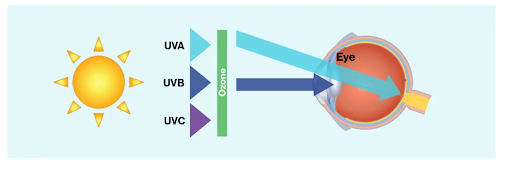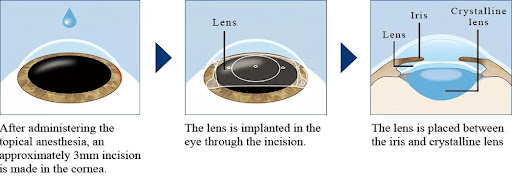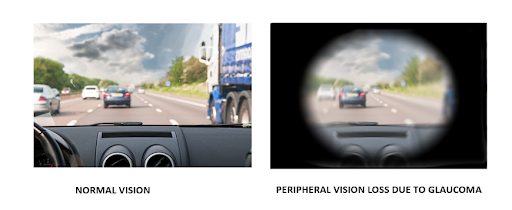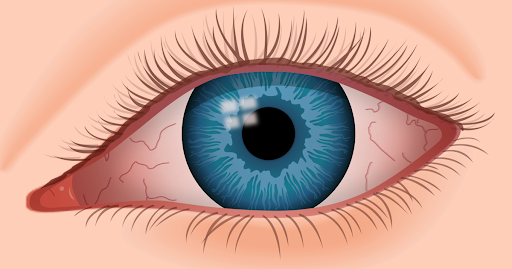In a world where we often underestimate the impact of ultraviolet (UV) rays on our eyes, understanding the importance of protecting your eyes from UV rays becomes paramount. This comprehensive guide explores the various aspects of eye protection, offering insights and practical advice to ensure optimal eye health.
At Eyeonce Eye Clinic, our eye doctors, Dr. Paik Dong Won and Jung Sae Rom take a proactive approach to safeguarding your eyes from the harmful effects of UV rays. They provide comprehensive eye examinations and UV-protective eyewear consultation, using cutting-edge UV-blocking technologies and customized UV protection plans.
What is the significance of eye protection?
The significance of eye protection extends far beyond a mere shield against external elements; it encompasses a holistic approach to safeguarding one of our most invaluable senses. Here are key aspects highlighting the importance of eye protection:
- Vital Sense Preservation – Our eyes serve as our primary means of perceiving the world. Protecting them ensures the preservation of this vital sense, allowing us to navigate and interact with our surroundings effectively.
- Guarding Against UV Radiation – Ultraviolet (UV) radiation, often underestimated, poses a considerable threat to eye health. Eye protection acts as a barrier against these harmful rays, reducing the risk of conditions like cataracts and macular degeneration.
- Long-term Vision Health – Consistent eye protection practices contribute to long-term vision health. Regular use of UV-protective sunglasses and adherence to eye care routines become instrumental in preventing degenerative eye conditions.
At Eyeonce, we believe that eye protection is not merely a precautionary measure; it is a proactive choice that contributes to the overall well-being, functionality, and longevity of our eyes, enriching the way we perceive and interact with the world.
What are the effects of UV rays on the eyes?
Ultraviolet (UV) rays, while invisible to the naked eye, can have a range of effects on the eyes, impacting both short-term comfort and long-term vision health. Here are the key effects of UV rays on the eyes:
- Photokeratitis – UV rays can cause a painful condition known as photokeratitis, akin to sunburn on the cornea. Symptoms include redness, tearing, and a gritty sensation, usually resolving within a day or two.
- Cataracts – Prolonged exposure to UV rays is a significant risk factor for the development of cataracts. This condition involves clouding the eye’s natural lens, leading to blurred vision and, if left untreated, eventual vision loss.
- Macular Degeneration – UV exposure has been linked to an increased risk of age-related macular degeneration (AMD). This progressive condition affects the macula, the central part of the retina, leading to a loss of central vision.
- Pterygium – UV rays can contribute to the growth of a non-cancerous growth on the eye’s surface called pterygium. This growth can cause irritation, redness, and a feeling of a foreign body in the eye.
- Eye Cancer – Although rare, prolonged and intense UV exposure is associated with an increased risk of eye cancers, including melanoma, on the surface of the eye.
- Increased Sensitivity to Light – UV exposure can lead to an increased sensitivity to light, a condition known as photophobia. This can result in discomfort in bright environments.
- Corneal Sunburn – Similar to the skin, the cornea can also experience sunburn. Symptoms include pain, redness, and a sensation of grittiness.
- Conjunctival Issues – UV rays can contribute to the development of conjunctival issues, including inflammation and irritation of the eye’s outermost layer.
- Accelerated Aging of the Eyes – Prolonged exposure to UV rays may contribute to the accelerated aging of the eyes, manifesting as wrinkles around the eyes and a general deterioration of the eye tissue.
- Aggravation of Existing Conditions – Individuals with existing eye conditions, such as glaucoma or retinal issues, may find that UV exposure exacerbates their symptoms and accelerates the progression of these conditions.
Protecting your eyes from UV rays is crucial in mitigating these effects. That is why our eye doctors at Eyeonce, Dr. Paik Dong Won and Jung Rae Som, recommend wearing sunglasses that block both UVA and UVB rays, along with other protective measures like hats, can significantly reduce the risk of UV-related eye issues and promote long-term eye health. Regular eye check-ups with them are also essential for early detection and management of any UV-related concerns.
What are the signs of UV-related eye damage?
Excessive exposure to ultraviolet (UV) rays can have adverse effects on your eyes. It is crucial to recognize the signs of UV-related eye damage to take timely action. Here are key indicators that your eyes may have been damaged by UV rays:
- Redness and Irritation
- Photophobia (Light Sensitivity)
- Blurred or Hazy Vision
- Difficulty Seeing Colors
- Increased Tearing
- Changes in Vision Clarity
- Development of Growth on the Eye
- Eye Fatigue
- Changes in the Appearance of the Eyes
- Frequent Headaches
If you experience any of these signs or symptoms, seeking prompt evaluation and care from an eye care professional, such as Dr. Paik Dong Won and Jung Rae Som at Eyeonce Eye Clinic, is crucial. Early detection and intervention can help manage UV-related eye damage and prevent further complications.
How to protect your eyes from UV rays?
Ensuring the health of your eyes involves proactive measures, especially when it comes to safeguarding them from the detrimental effects of ultraviolet (UV) rays. Eyeonce Eye Clinic recommends the following ways to protect your eyes from UV rays:
- Wear UV-protective sunglasses
- Choose sunglasses with wraparound frames
- Wear a wide-brimmed hat
- Avoid peak sun hours
- Use UV-protective contact lenses
- Apply sunscreen around the eyes
- Stay hydrated
- Have regular eye check-ups
By incorporating these tips into your daily routine, you not only protect your eyes from the harmful effects of UV rays but also contribute to their long-term health. Eyeonce Eye Clinic is dedicated to guiding individuals in making informed choices for optimal eye protection and well-being.
Frequently Asked Questions (FAQs)
No. UV rays are present even on cloudy days. Clouds provide minimal protection, and UV rays can penetrate, causing potential harm to your eyes. It is important to wear UV-protective sunglasses consistently, regardless of the weather.
Unfortunately, most UV-related damage to the eyes is irreversible. While early detection and intervention can prevent further harm, it is crucial to prioritize proactive measures, such as wearing UV-protective eyewear, to minimize the risk of damage in the first place.
No. Not all sunglasses provide adequate UV protection. It is essential to choose sunglasses labeled as blocking 100% of both UVA and UVB rays. Eyeonce Eye Clinic recommends selecting high-quality sunglasses that meet stringent UV-blocking standards for optimal eye safety.
Conclusion
Understanding the far-reaching effects of UV exposure on our eyes, from the immediate discomfort of photokeratitis to the long-term risks of cataracts and macular degeneration, prompts a call to action. Eyeonce Eye Clinic stands as a beacon of expertise and guidance in this journey toward optimal eye protection. With a commitment to comprehensive eye care, Eyeonce emphasizes the significance of UV protection through personalized solutions, education, and cutting-edge technologies. Schedule your appointment with us today!



